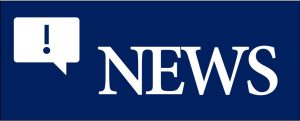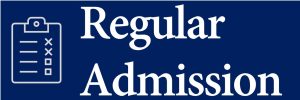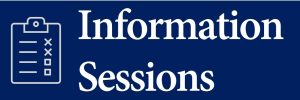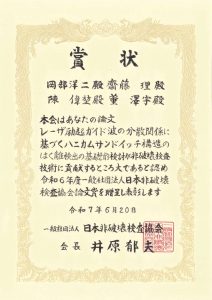Date of Award:2025.12.04
Name, Faculty/Graduate School: Department of Systems Innovation, School of Engineering, Ziyao Tang (D1), Ryo Miyamoto (M2), Jiaxin Li (M2), Kounosuke Ayuzawa (B4), Cheng Jin (D2)
Name of the award and a short explanation about the award:The SAMPE (The Society for the Advancement of Material and Process Engineering) Student Bridge Contest World Championship is an annual international competition evaluating lightweight bridges fabricated from fiber-reinforced composite materials, with around 100 teams participating worldwide. In this year’s Japan preliminaries, our team won Third Prize in the Recycled Carbon Fiber Division (Category R). This award recognizes the significant technical progress we achieved in recycled composite design and molding.
The Society for the Advancement of Material and Process Engineering (SAMPE), Japan region
About awarded research:In the Bridge Contest, student teams design and manufacture composite bridges that are evaluated through a three-point bending test. The lightest bridge that exceeds a specified load receives a higher score. We participated in the Recycled Carbon Fiber Division (Category R), a recently established category reflecting the global trend toward circularity. Teams are required to use the recycled carbon-fiber nonwoven fabrics provided by SAMPE Japan, while the resin system, layup configuration, and molding methods are unrestricted. This year, our team focused on a systematic redesign of the layup configuration, optimizing the load-transfer pathways within the structure. This approach led to a more desirable and predictable failure mode during bending tests and improved overall structural efficiency, ultimately contributing to our achievement of the Third Prize.
Awardee’s impression & future plan:We are truly honored to receive this award. We would like to express our sincere gratitude to all laboratory members who supported us during the design, fabrication, and testing stages. Building upon insights gained from previous years, our team further advanced the molding techniques for recycled carbon fibers and achieved results that exceeded expectations. The experience and recognition from winning the Third Prize motivates us to aim even higher. As we prepare for the next competition cycle, we plan to deepen our understanding of recycled carbon-fiber mechanics, enhance interface quality, and pursue further improvements in structural efficiency. Our goal is to develop a lighter, stronger, and more stable recycled-carbon-fiber bridge and strive for higher honors in future competitions.










